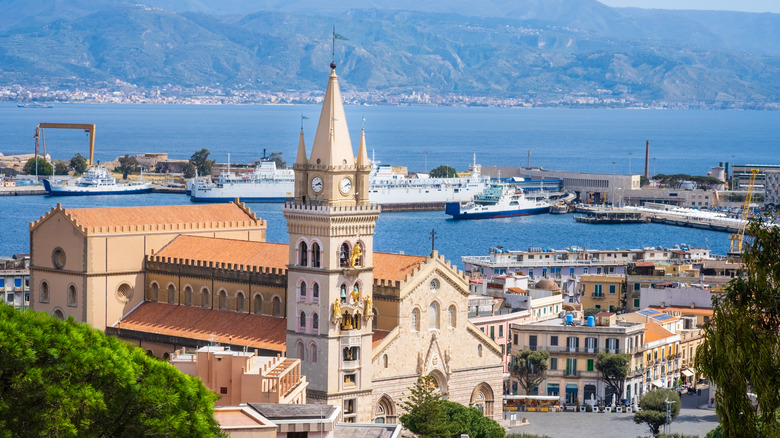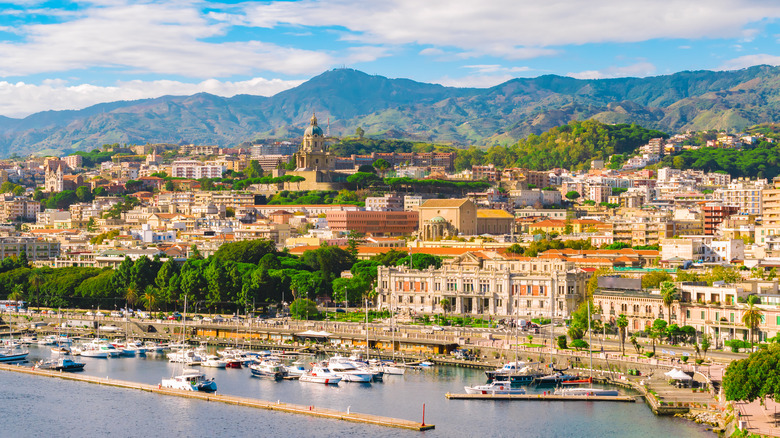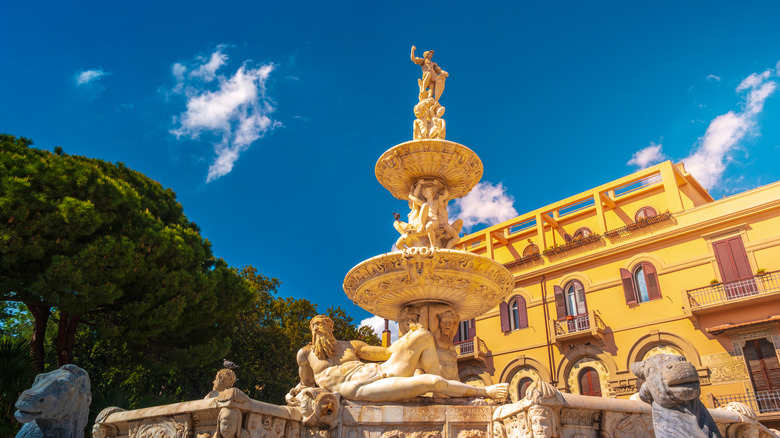The Gateway To Sicily Is An Underrated Italian City Full Of Seafront Bars And Beaches
Sicily is an island full of stories. From ancient myths and a remarkably checkered history to dark tales of vendettas and organized crime, it is one of the most interesting places in Italy to visit. For many people, the port city of Messina will be their first glimpse of Sicily, sailing across the Straits of Messina from Calabria, the toe of the Italian boot.
For some travelers, Messina is just a gateway, a useful entry point to glide through on the way to more famous spots like Taormina, Siracusa, or Italy's tallest active volcano, Mount Etna. But Messina is a charming, Italian seaside city bursting with life, with a selection of impressive beaches and an exciting nightlife. It's the perfect place to get a taste of Sicilian life and culture.
Arriving by boat, your first impression of Messina is of its grand seafront, with the impressive Madonnina del Porto, a column topped with a bronze Madonna, welcoming you to the city. However, the atmosphere is far more laid-back than the imposing facades of the buildings that line the port might suggest. Due to the popularity of other Sicilian destinations, Messina is a city where you can get away from the crowds and enjoy a more relaxed, tranquil escape.
A city of ancient history, myth, and legend
Messina boasts the largest natural harbor in the Mediterranean and as a result has been inhabited for nearly 3,000 years. It started as a colony controlled by Greeks from the city of Chalcis. Due to its location and deep harbor, it has changed hands many times over the centuries, echoing the dizzying and disrupted history of the rest of Sicily. Greek, Italian, Roman, Germanic, Byzantine, Arab, Norman, French, and Spanish rulers have all called Messina their own at one time or another, which has made it a wonderful melting pot of cultures and traditions.
Messina is also where some of the most fascinating legends of the ancient world took place. According to Homer, Odysseus sailed through the Strait of Messina on his epic voyage home from the siege of Troy and encountered the twin hazards of Scylla and Charybdis. Scylla was said to be a gigantic monster with 12 feet and six heads who lurked in a cave near Messina and devoured sailors. Charybdis, a more ethereal being, manifested as a vast whirlpool on the Calabrian side.
Churches, clocks, and mouthwatering morsels
Even if you are only passing through, Messina is a delightful community. Whether you are driving off to Palermo or arriving on the wonderfully weird overnight train-ferry (a rail route that involves putting an entire train on a ferry to cross the sea), you'll enjoy the picturesque landmarks that line the seafront. But Messina deserves a closer look and rewards anyone who spends a little more time here.
Messina's historic center, the Piazza del Duomo, is a great place to start. It is home to the Theater Vittorio Emanuele II, Sicily's largest theater, as well as a beautiful cathedral that houses some ornate mosaics, an amazing gold and silver museum, and an extraordinary mechanical and astronomical clock. A short walk away, the Fontana di Orione is as impressive as Rome's Trevi Fountain, while the sunken Church of the Santissima Annunziata dei Catalani is a stark reminder of the natural disasters that are a feature of Sicily's history.
Messina's drinking and dining scene is one of the main reasons to stay a few nights in the city, offering a showcase of Sicilian cuisine, deemed by Rick Steves to be some of the best food in all of Italy. Street food is a huge part of Sicilian cooking, so don't miss out on succulent arancini, pitoni messinesi (a kind of pizza-empanada hybrid), or traditional Messinese focaccia. For drinking and dancing, the promenade is a swell locale, with a number of excellent cafés and bars serving up cocktails and sea views.


